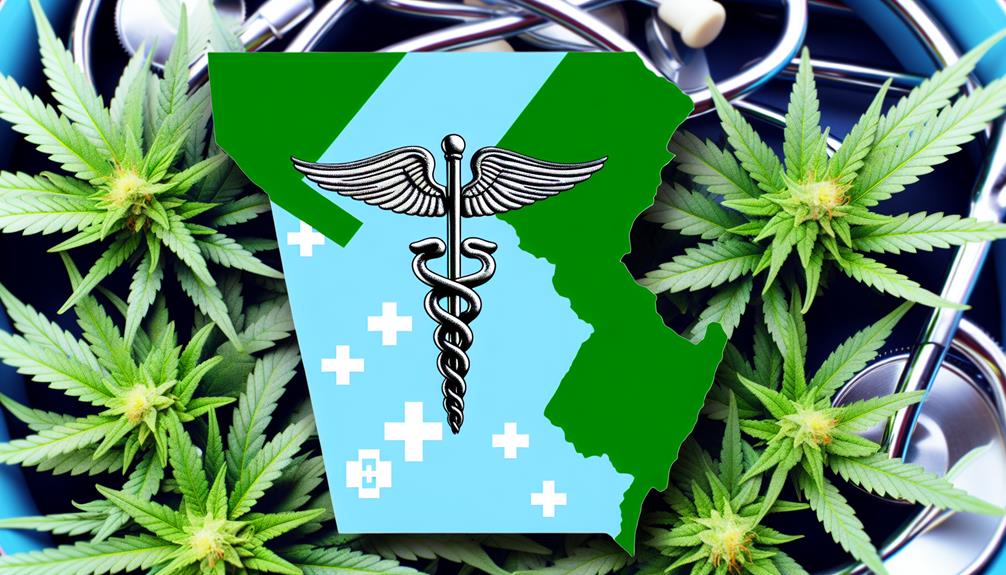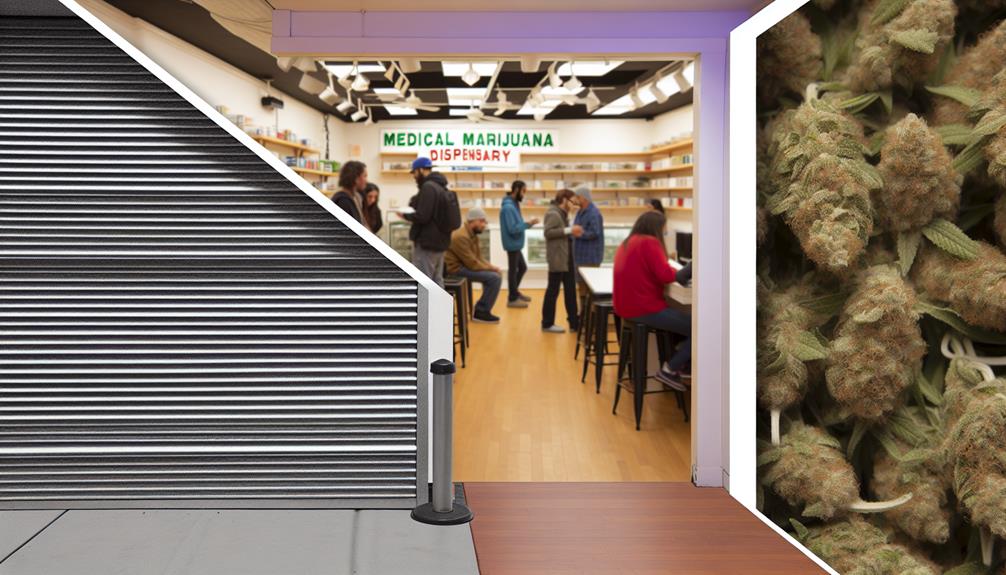Did you know that the recent passing of Delaware’s House Bill 285 has significantly expanded access to medical marijuana? This legislation has broadened the list of qualifying conditions, granted the right for home cultivation, and mandated a compassion center in each county. But what’s the real impact of these changes on patients and the healthcare system at large? Let’s delve deeper and unravel the implications of this progressive legislation.
Table of Contents
Understanding House Bill 285

The enactment of House Bill 285 has considerably changed the landscape of medical marijuana access in Delaware. You’ve likely heard about this significant development, but understanding its nuances and legislative process can empower you to better serve your community.
Under previous laws, individuals had limited access to medical marijuana. However, House Bill 285 opened up new avenues. It’s important to note that this wasn’t an overnight change. The legislative process was meticulous, involving careful deliberation and negotiation among stakeholders. Advocates for patients’ rights worked tirelessly, resulting in their efforts paying off.
The bill’s provisions include an expanded list of qualifying conditions and removal of restrictions on where dispensaries can be located. The bill also allows for home cultivation of marijuana for medicinal purposes—a significant shift that increases accessibility for those who require this treatment.
You’re now not just aware of changes brought about by House Bill 285 but also have a deeper understanding of the intricate legislative process and specific provisions that have widened medical marijuana access in Delaware. This knowledge equips you to be a better advocate and resource in your community.
Changes in Medical Marijuana Laws

Delaware’s medical marijuana legislation has undergone significant changes, and understanding them is crucial to navigating this new terrain. The legal framework has been restructured, thanks to House Bill 285, to improve patient rights and ensure more equitable access to medical marijuana.
In this new law, you’ll find that the definition of “debilitating medical condition” has been broadened. This expansion means that more patients with varying health conditions can now qualify for medical marijuana usage. It’s a critical step towards recognizing the diverse health challenges individuals face and legitimizing medical marijuana as a treatment option for them.
Moreover, the bill mandates the establishment of at least one compassion center in each county. These centers are key to ensuring patients have local, reliable access to medical marijuana—reducing travel burdens on patients and caregivers.
Last but not least, HB 285 removes the cap on the number of marijuana plants a compassion center can cultivate. This change helps prevent potential supply shortages—guaranteeing patients have consistent access to their medication.
These changes in Delaware’s medical marijuana laws confirm the state’s commitment to improving patient rights and access to care.
Patient Benefits From HB 285

While you may initially see HB 285 as a mere alteration in legislation, it’s actually a significant advancement in patient rights and accessibility to medical marijuana. This law provides a framework for comprehensive patient education and caregiver involvement—expanding understanding of how medical marijuana can enhance treatment protocols.
HB 285 focuses on improving patient education, providing you with the knowledge necessary to make informed decisions about medical marijuana and your health. Through this education, you’ll gain a deeper understanding of potential benefits, risks, and safe usage of medical marijuana.
The bill also emphasizes the role of caregiver involvement—a critical aspect to ensure proper use and administration of medical marijuana. By involving caregivers, the law ensures that you’re not navigating the complex world of medical cannabis alone. Your caregiver will be there to support you—helping you understand dosages and manage potential side effects.
All these measures contribute to creating a safer, more inclusive environment for medical marijuana use.
Impact on Delaware’s Healthcare System

As we explore the impact of HB 285 on Delaware’s healthcare system, it’s crucial to recognize the ripple effect this bill is set to create. This isn’t just about improving patient access to medical marijuana—it’s about fundamentally altering how care is delivered.
Firstly, there will be a reduction in healthcare disparities. By providing an alternative treatment option, HB 285 levels the playing field—especially for patients who’ve previously struggled to find effective pain management solutions. This increased access means that patients across socio-economic boundaries have more choices when it comes to their health.
Additionally, the introduction of HB 285 will streamline operations within healthcare facilities. With clear regulations for medical marijuana use, healthcare providers can now integrate this treatment into their services more seamlessly. It’s a win-win situation that benefits both patients and healthcare providers.
Lastly, consider the economic implications. An increase in patient access to medical marijuana translates to more demand—potentially catalyzing growth in Delaware’s healthcare sector.
Comparing Pre and Post HB 285

Before the enactment of HB 285, you might recall the restrictive nature of medical marijuana accessibility in Delaware. The legal implications were stringent—limiting access primarily to terminal patients. This impacted patient demographics greatly—with many suffering from chronic but non-terminal illnesses unable to obtain relief through this method.
After HB 285, however, a transformation occurred. The legal implications eased and the bill expanded access to a larger demographic of patients—including those with severe and chronic illnesses.
You’ll notice a significant change in patient demographics post-HB 285—with a broader age and illness range now benefiting from medical marijuana. These changes aren’t just statistics on paper—they represent real people experiencing relief from pain and debilitating symptoms.
Remember, changes in legislation like HB 285 don’t just shift legal boundaries—they have tangible impacts on individuals’ lives. In comparison, post-HB 285 Delaware shows an improved, more inclusive landscape for medical marijuana access.
This isn’t just an advancement in healthcare—it’s a reflection of Delaware’s commitment to better serve its diverse population. It’s evidence of the state’s dedication to exploring unconventional paths to enhance the quality of life for its residents.
Future Implications for Delaware’s Medical Marijuana Access

Post-HB 285, Delaware has demonstrated a clear commitment to broadening medical marijuana access. This progressive stride signifies a transformative shift in healthcare, and it’s vital to contemplate future trends and potential regulatory challenges that could shape the landscape of medical marijuana in Delaware.
First, let’s explore three key areas:
- Regulation Evolution: As Delaware continues refining its medical marijuana program, expect more thorough and patient-centered regulations. These could involve streamlining the application process or diversifying the list of qualifying conditions.
- Research and Development: Increased access to medical marijuana may spur more research and development activities. This would deepen understanding of marijuana’s therapeutic benefits and potential risks—enhancing its value as a legitimate medical option.
- Economic Impact: The expansion of medical marijuana access has potential economic implications. It could stimulate job creation and generate significant tax revenue for the state.
However, overcoming regulatory challenges is vital to capitalizing on these opportunities. Striking a balance between patient needs, public safety, and federal law will be pivotal.
The journey in expanding medical marijuana access in Delaware is just beginning—but the potential for growth and improvement is immense.
Conclusion
In conclusion, HB 285 has undeniably simplified access to medical marijuana in Delaware. Consider Jane, a cancer patient from a rural Delaware county. Before HB 285, her long travel to the nearest compassion center was arduous. Now, she cultivates her own medical marijuana—reducing travel and enhancing her treatment. With improved accessibility and patient education, Delaware is setting a positive example of how policy can directly impact patient care and quality of life.
If you’re curious to learn more about how these changes might benefit you or a loved one, I warmly invite you to visit Cannabis Docs of Delaware. Our team is here to help guide you through the process—we’re just a phone call away at (855) 420-6797. We’d love to chat and see how we can assist you on your journey to improved health and well-being!

